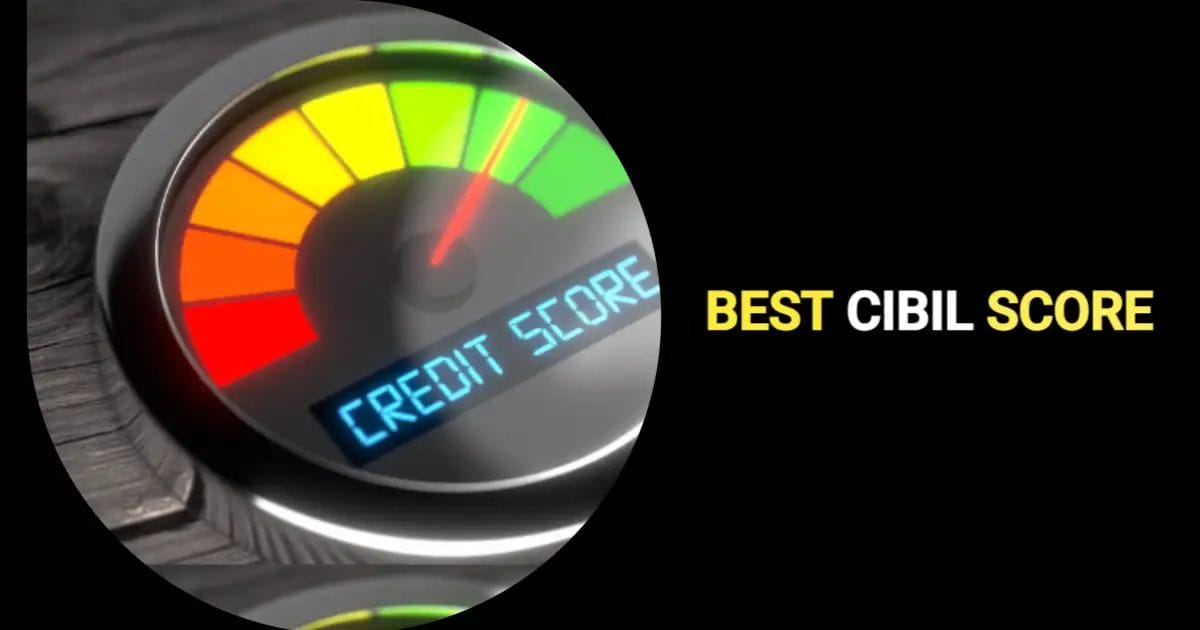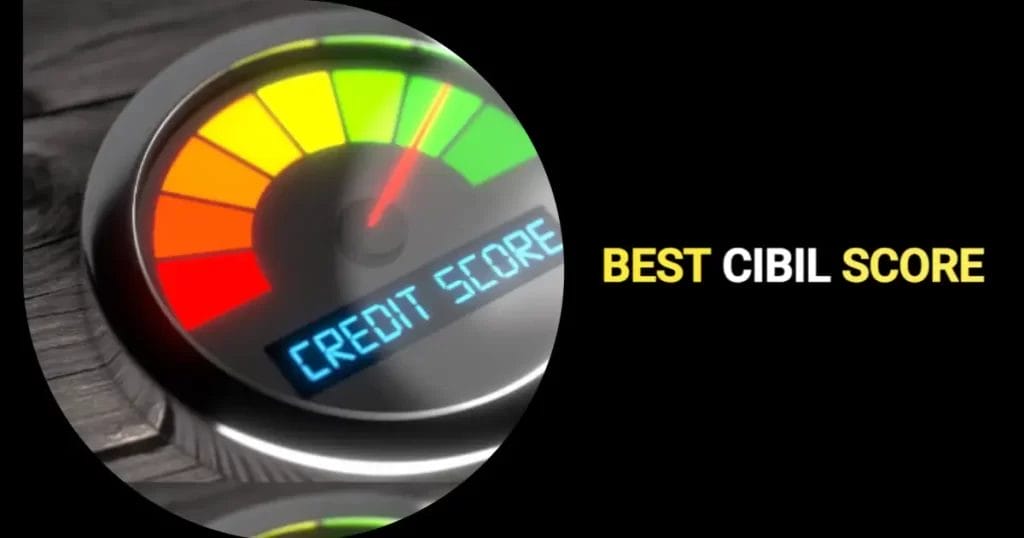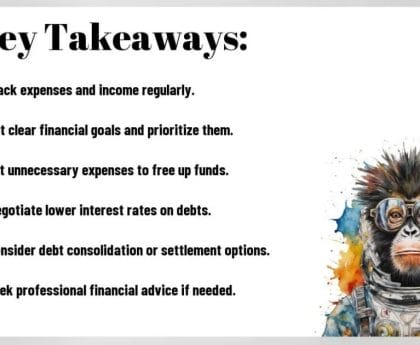Your CIBIL score is a crucial factor when borrowing money from a financial institution. It summarizes your credit history, which helps lenders determine your creditworthiness. If you have a low CIBIL score, you may struggle to get approved for loans or credit cards or end up paying a higher interest rate. So, what is the best CIBIL score for a loan, and how can you improve it?
The ideal CIBIL score for a loan varies depending on the lender and the type of loan you are applying for. However, a score of 750 or above is generally considered good and can increase your chances of getting approved for a loan at a lower interest rate. Improving your CIBIL score takes time and effort, but it can be done by paying your bills on time, keeping your credit utilization low, and avoiding applying for too much credit at once.
In this article, we will discuss the best CIBIL score for a loan and provide tips on improving your score. Following these tips can increase your chances of getting approved for a loan at a lower interest rate and save money in the long run.
What is a CIBIL Score?
A CIBIL score is a three-digit numerical representation of an individual’s credit history ranging from 300 to 900. It gives lenders an idea of how creditworthy a borrower is and helps them assess the potential risk of lending money. A high CIBIL score indicates that the borrower is reliable and responsible in their financial dealings, while a low CIBIL score can signal a high credit risk. Therefore, having a good CIBIL score is crucial for Loan Applications. It increases the chances of loan approval and ensures the borrower receives a favorable interest rate and credit terms from lending institutions.
The Credit Information Bureau (India) Limited, or CIBIL, provides credit score information to lending banks.
In conclusion, managing your credit accounts responsibly by making timely payments and keeping your credit utilization low can positively impact your CIBIL score. Also, avoid making several credit applications within a short period to avoid negative impacts on your score.
What is the Best CIBIL Score for a Loan?
When you apply for a loan, your credit score plays an integral role in determining whether or not you’ll be approved. That’s why having a good credit score is so important. CIBIL score is one factor that lenders consider while evaluating loan applications. CIBIL Score is a three-digit number that ranges between 300 and 900 and is issued by Transunion CIBIL – one of India’s four credit rating agencies. In this section, we’ll discuss the CIBIL Scores Range and Bands and the impact of different CIBIL Scores on loan approval chances.
CIBIL Scores Range and Bands
When borrowing money, having a good credit score is essential. It establishes your creditworthiness and determines whether or not lenders will approve your loan application. It is where the concept of CIBIL score range and bands becomes crucial.
A CIBIL score is a three-digit number that ranges from 300 to 900, with 900 being the highest possible score. The higher the score, the better the creditworthiness of the borrower. It tells lenders how responsible you are with credit and how likely you are to repay the loan on time.
CIBIL scores are grouped into different bands to make it easier to understand. These bands reflect the degree of creditworthiness and loan eligibility of the borrower.
The CIBIL score bands can be categorized into five main credit score ranges:
1. 800 to 850: Excellent – Individuals in this range are considered low-risk borrowers and are more likely to secure loans with favorable terms, including lower interest rates and fees, as well as attractive credit card rewards programs.
2. 740 to 799: Very Good – Borrowers with a credit score in this range have demonstrated a history of positive credit behavior and may have an easier time being approved for additional credit.
3. 670 to 739: Good – Lenders generally view those with credit scores of 670 and up as acceptable or lower-risk borrowers. These individuals may still qualify for loans but may not receive the best terms.
4. 580 to 669: Fair – Individuals in this category are often considered “subprime” borrowers and may be viewed as higher risk by lenders. They may have trouble qualifying for new credit or face higher interest rates and less favorable terms.
5. 300 to 579: Poor – Borrowers with a credit score in this range are considered high-risk and may struggle to secure loans or credit lines. They may need to improve their credit score before applying for credit.
In conclusion, having a good CIBIL score range is essential for obtaining loans and establishing creditworthiness. Understanding the different bands and where you fall on the spectrum can help you navigate the borrowing process more effectively.
Impact of Different CIBIL Scores on Loan Approval Chances
When you apply for a loan, your CIBIL score plays a crucial role in determining the outcome of your application. This score is calculated based on your credit history, payment behavior, and credit utilization, among other factors. Lenders use this score to evaluate your creditworthiness and determine whether you qualify for a loan and the terms you’ll get. In this section, we will explore the impact of different CIBIL scores on loan approval chances and the eligibility criteria that lenders use to evaluate loan applications.
A High CIBIL Score Increases Loan Approval Chances
A high CIBIL score reflects your responsible credit behavior and timely payments, indicating to lenders that you are a low-risk borrower. If your score falls within the range of 750 and above, you can get approved for a loan. Lenders are more likely to grant higher loan amounts, lower interest rates, and flexible repayment terms to applicants with high credit scores. It is because they perceive such applicants as less likely to default on the loan, reducing the lender’s risk.
A Low CIBIL Score Reduces Loan Approval Chances
On the other hand, if your CIBIL score falls below 650, it may negatively impact your loan approval chances. Lenders may perceive you as a high-risk borrower, which can result in higher interest rates or even a loan rejection. If approved, you may get lower loan amounts or unfavorable repayment terms due to the higher risk you pose to the lender.
CIBIL Score Ranges and Eligibility Criteria
Lenders classify applicants into different CIBIL score ranges and bands to determine their creditworthiness and eligibility for a loan. The common score ranges include:
- 800 to 850: Excellent credit score
- 740 to 799: Very Good credit score
- 670 to 739: Good credit score
- 300 to 579: Poor credit score
Apart from the score, lenders also consider several factors when evaluating an applicant’s eligibility for a loan. They assess the debt-income ratio, which evaluates the proportion of your income that goes toward paying off your debts. A lower ratio implies that you have more money left over after meeting your debt obligations, which translates to an improved creditworthiness evaluation.
Lenders may also look at your employment history to assess your job and income stability. They also consider your type of employment or profession, which may impact your repayment ability depending on the sector’s economic stability.
Lastly, lenders put considerable weight on your repayment history because it helps them see if you have disciplined payment behavior. If you have a history of late payments, it may negatively impact your score and your eligibility for a loan.
In conclusion, your CIBIL score is a crucial prerequisite for applying for a loan. It determines your loan approval chances, loan terms, and interest rates. Maintaining a high credit score is vital, as lenders perceive you as a low-risk borrower, increasing the likelihood of getting approved for a loan. Additionally, meeting all the eligibility criteria beyond your CIBIL score will strengthen your chances of obtaining the loan.
Why is it Important for Loan Applications?
Regarding loan applications, your CIBIL score plays an integral role in determining your creditworthiness. Your CIBIL score indicates your ability to repay loans and is based on your credit history and payment behavior. This score determines how lenders perceive you and your creditworthiness when applying for a loan.
A good CIBIL score is essential to ensure your loan application is approved. Potential lenders greatly emphasize this score to evaluate the level of risk and the likelihood of you making timely payments. With a high CIBIL score, you can better negotiate a lower interest rate and more favorable loan terms. However, a low CIBIL score can seriously hurt your chances of obtaining your desired loan.
A borrower with a low CIBIL score is considered a high-risk borrower. Lenders may be hesitant to lend to you or offer you high-interest rates, making it difficult to meet the loan requirements. A low CIBIL score indicates that you may have a history of delayed payments or defaults, which a lender may not be willing to risk.
In conclusion, having a good CIBIL score is crucial for loan applications. It is important to make timely payments and keep a low credit utilization ratio to maintain your creditworthiness. It will improve your chances of loan approval and ensure you get a sought-after loan.
Factors that Determine CIBIL Score
The CIBIL score is crucial for lenders to determine borrowers’ creditworthiness. It is calculated based on various factors such as credit history, credit utilization ratio, payment history, credit mix, credit accounts and inquiries, dues, and timely payments. Let’s take an in-depth look at these factors in detail to understand how they affect the CIBIL score.
Credit History
Credit history is an indispensable aspect of any credit assessment. An individual’s credit history is the primary criterion on which the CIBIL score is based, the general measure of one’s creditworthiness, and the most critical factor in obtaining loan approval. It is, therefore, essential for individuals to maintain a spotless repayment record to maintain a good credit history.
Timely and regular payments are crucial in reflecting a better score for your credit history, ensuring that the lender is confident in your ability to repay the loan on time. A single missed payment can severely impact your credit history, causing your credit score to plummet.
Additionally, credit history comprises several other factors, such as the type of loans taken, repayment periods, and credit limits. A diverse credit mix and low credit utilization are vital in developing a healthy credit history. Positive credit behavior and good credit health should be the focus to ensure a good credit rating for future borrowing.
Understanding the impact of credit history on loan applications and creditworthiness is paramount in ensuring that potential lenders have confidence in an individual’s ability to repay on time. Don’t forget engaging in negative credit behavior like skipping payments and maintaining sky-high credit utilization ratios can inflict severe damage on your credit history and even impede the loan approval process.
In conclusion, maintaining a good credit history helps facilitate quick loan approvals and low-interest rates. A healthy credit mix and low credit utilization ratios are critical components of an excellent credit history, and timely repayments are key to keeping a good repayment record. Maintaining a good credit history is advisable, as it significantly increases the chances of approval for any loan.
Credit Utilization Ratio
The credit Utilization Ratio (CUR) is crucial in determining a person’s CIBIL score. It is the percentage of the total credit limit that a person has utilized. A good CUR indicates a person’s responsible credit behavior and reflects positively on their creditworthiness.
Overspending or overutilizing credit limits and frequent credit borrowing can hurt CUR. People who regularly max out their credit cards or use a high percentage of their available credit limit are considered risky applicants. Their repayment ability may be limited, increasing the chances of missed or delayed credit repayment. This situation can result in a poor CIBIL score, making getting approved for loans or credit challenging.
Maintaining a good CUR requires responsible credit behavior. One way to achieve this is by reducing credit card balances and unsecured loans. Paying off these debts or reducing their outstanding balances helps to improve the CUR. Another way is to avoid borrowing from multiple credit facilities regularly. Instead, people can opt for affordable credit facilities that meet their financial needs without disturbing their CUR.
Maintaining a good CUR is vital for securing loans at a low-interest rate with quick loan approvals. People should strive to repay their EMIs on time and maintain a good repayment record to impact their CUR positively. It is also essential to avoid missing or delaying payments, as this can negatively impact credit accounts and result in a poor CIBIL score.
In conclusion, Credit Utilization Ratio (CUR) is an important determinant of a person’s CIBIL score. Overspending or overutilizing credit limits and regular borrowing from multiple credit facilities can negatively impact CUR. If you want a loan, being careful with money is important. Pay off balances, don’t borrow too much, and be careful when getting loans. It will help you have a good credit score and make it more likely that you’ll get approved for a loan.
Payment History
Payment History is critical in determining an individual’s creditworthiness and CIBIL score. Lenders and financial institutions rely on past payment history to evaluate an individual’s credit behavior and assess their risk of default. A consistent Payment History with timely payments and zero dues can significantly boost an applicant’s chances of securing a loan.
Maintaining a positive credit score is vital in building a healthy financial reputation, and timely payments and dues are crucial in this process. Lenders consider individuals with a history of paying their bills on time and responsibly managing their dues as financially disciplined and reliable. On the other hand, late payments and missed dues can severely impact the loan application process and negatively affect one’s credit score.
Late payments or missed dues, no matter how small, can trigger a negative credit history report, lowering the CIBIL score. Continuously missing payments shows a lack of financial discipline and reduces the chances of loan approval. Due to negative Payment History, lenders may charge high-interest rates or reject the loan application altogether.
To maintain a positive Payment History, individuals should create a repayment schedule to ensure timely payment of bills and dues without fail. Consistently paying dues on time establishes creditworthiness, resulting in higher credit scores. Individuals can also opt for autopay options or reminders to avoid missing out on payments.
In conclusion, Payment History is a crucial aspect of a credit score and significantly impacts the loan application process. payments on time and proper debt management are essential in maintaining a good credit score and securing the desired loan. It is equally important to keep a record of the repayment schedule and stay committed to paying all dues on time to avoid negative Payment History.
Credit Mix
Credit mix is an important factor that lending institutions consider when evaluating someone’s creditworthiness. It refers to the variety of credit accounts one holds, including credit cards, secured loans, unsecured loans, and other credit facilities. A good mix of credit accounts reflects responsible credit behavior and positively impacts the CIBIL score.
Maintaining a balanced credit mix is essential for building a strong credit profile and increasing the chances of loan approval. A mix of secured and unsecured loans in the credit portfolio can show potential lenders that the borrower can manage different kinds of credit accounts responsibly. A person who only has one type of credit account, say only credit cards, may not be perceived as favorably as someone who holds a variety of credit accounts.
Some credit accounts that positively contribute to a good credit mix include secured loans, such as home loans or car loans, and unsecured loans, such as personal or credit card loans. Secured loans offer a lower interest rate as an asset backs them, while unsecured loans have no collateral backing them up and may come with a higher interest rate.
Having a good mix of credit accounts can also benefit the credit score. A diverse credit mix shows that the borrower can handle different kinds of credit and make timely repayments. A good payment history on a mix of credit accounts can help raise the credit score and demonstrate financial responsibility.
In conclusion, a good credit mix is essential for improving the credit profile and increasing the chances of loan approval. Maintaining a balanced mix of credit accounts, including secured and unsecured loans, is recommended to showcase responsible credit behavior and build strong creditworthiness.
Credit Accounts and Inquiries
While determining your creditworthiness and overall credit score lenders also look for the number of credit inquiries and credit accounts. Credit accounts, including credit cards and loans, account for a significant portion of your credit score and can impact it positively or negatively, depending on how you manage them.
In addition to credit accounts, credit inquiries into your credit history also impact your credit score. If you apply for multiple loans or credit cards all at once, it can indicate to lenders that you are in financial trouble and trying to obtain credit to cover your expenses. Several inquiries within a short period can decrease your score, making it harder for you to get approved for credit in the future.
However, it is crucial to understand that there are two types of inquiries: hard and soft. While hard inquiries impact your credit score, soft inquiries do not. Soft inquiries typically come from lenders doing a background check before sending you a pre-approved credit offer or when you check your credit score.
Strategies to Improve Your CIBIL Score
When acquiring a loan or credit card, your credit score plays a crucial role. A good score means a higher chance of loan approval and a low-interest rate. Your CIBIL score reflects your creditworthiness based on your repayment history and credit behavior. So, whether you’re looking for a personal loan or planning to buy a new home, improving your CIBIL score should be your primary focus. To achieve that, you must start by understanding your current financial situation, debts, and assets. Additionally, reducing credit card balances and unsecured loans is crucial, which we will explore in more detail below.
Understand Your Current Financial Situation, Debts, and Assets
Before applying for a loan, it is essential to understand your current financial situation, debts, and assets. Many borrowers make the mistake of applying for loans without a clear understanding of their financial status, leading to them being on the hook for repayments they cannot afford.
- When reviewing your current financial status, there are several factors that you need to consider. One of the first things to analyze is your income. Your income can help you determine how much you can afford to borrow and how much you will need to repay.
- Expenses can also play a significant role in your current financial situation. You need to examine your monthly expenses, including rent/mortgage payments, utility bills, groceries, entertainment, and any other recurring expenses. Once you have a clear picture of your expenses, you can determine how much money you have left over each month to put toward loan repayments.
- Outstanding debts such as credit card bills and loan repayments should also be considered. List down all your financial obligations to better assess how much you can afford to borrow. It is also essential to be aware of your assets, such as a house, car, or investments.
- Having an accurate picture of your financial status is crucial when applying for a loan. It helps determine how much you can afford to borrow without financial trouble. It will also help determine the interest rates for which you might qualify.
In summary, before applying for a loan, understand your current financial status, including your debts, income, assets, and expenses. By doing so, you can better understand how much you can afford to borrow and what your monthly repayments will be.
Reduce Credit Card Balances and Unsecured Loans
Maintaining a good CIBIL score is crucial for loan approvals, as lending institutions rely heavily on an applicant’s credit history. One factor that can negatively impact a person’s CIBIL score is having high credit card balances and unsecured loans. These loans can quickly accumulate, resulting in a higher debt-to-income ratio and potentially lower credit scores.
- One effective approach to tackle this is to prioritize the payment of high-interest loans. It can reduce the total amount of interest paid over time while also bringing down the overall principal amount of the loan. It is important to be careful with money and not use credit cards too much. Only buy things that you can pay off quickly or plan for.
- Consolidation options can bundle multiple bills into one manageable payment, providing a more organized approach to debt repayment. For instance, a debt consolidation loan can help combine multiple monthly payments into one, with a lower interest rate than that of a credit card, making it easier to repay.
- Budgeting helps prioritize expenses and allocate funds efficiently to minimize overall expenses and maximize savings. It involves reviewing income and expenses, creating a budgeting plan with timelines, and regularly tracking and adjusting the plan. It can help you to live within your means and reduce your unsecured loan and credit card debts over time.
- Negotiating with creditors can also be an option, where you can work on reducing the interest rates of your loans, extend repayment periods, or work out a feasible payment plan for you. In some cases, seeking the help of a financial consultant can provide valuable insight into how to manage debt in your situation.
Reducing credit card balances and unsecured loans may be challenging, but it is achievable with discipline and a willingness to prioritize the task. By implementing these strategies, one can reduce debt and improve their CIBIL score over time.
Conclusion:
Your CIBIL score plays a crucial role in determining your eligibility for a loan, and it’s important to maintain good credit behavior to increase your chances of getting approved. By following the tips mentioned above, you can work towards improving your score and securing the loan you need. Remember, a good CIBIL score not only help you get a loan but also opens up doors to better financial opportunities in the future. So, start working on your score today and watch your financial dreams come true!





